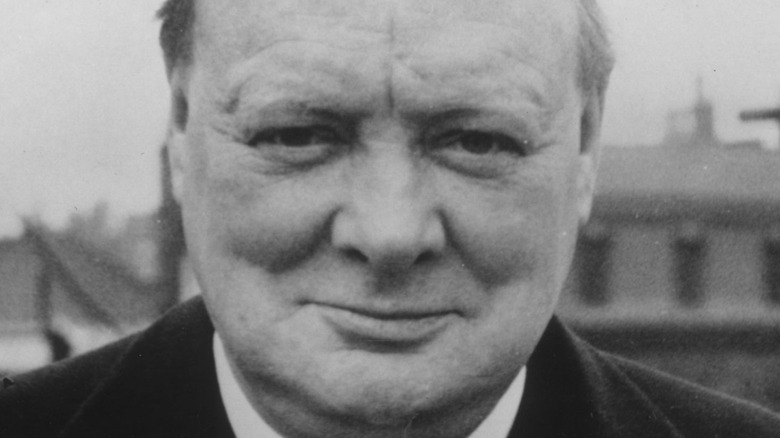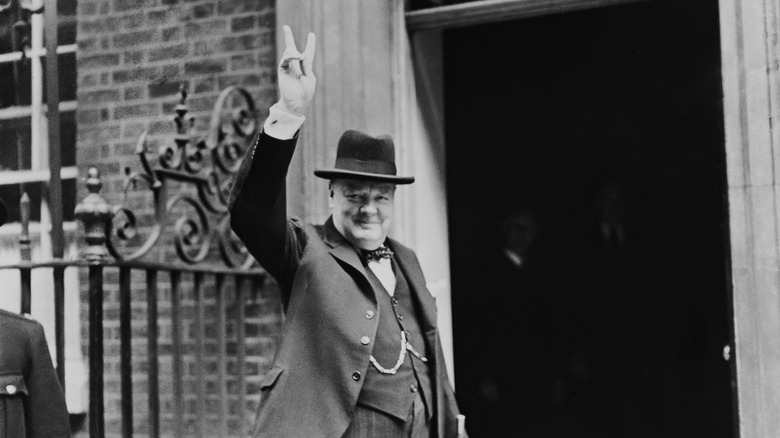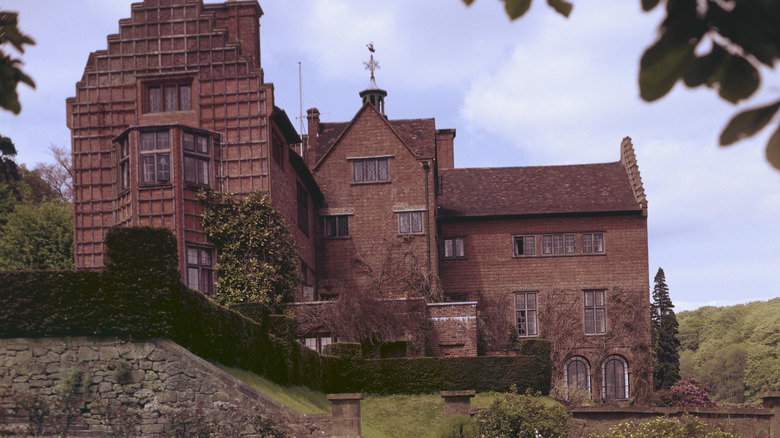A Look At Winston Churchill's Troubles With Money
British statesman Sir Winston Churchill might be best known for his leadership during WWII, but the former prime minister of the United Kingdom apparently wasn't as good when it came to managing his own finances. Churchill was reportedly in financial chaos for most of his life and very often spent money he didn't have, per The Atlantic.
In his book, "No More Champagne: Churchill and His Money," author David Lough goes into detail regarding Churchill's purported poor money management skills. According to Lough, Churchill was just steps away from filing bankruptcy in the 1930s, owing a lot of people a lot of money. At one point, his debt was as much as $4 million in today's money, via CNBC.
When Churchill was about $3 million in debt, he inherited the equivalent of $7.5 million. He could've paid off his debt and still have a good $4 million left to spend. But, as Lough told CNBC, "that wasn't his style, he kept all of his debt and blew out his balance sheet."
Churchill had expensive taste and even more expensive hobbies
Seemingly, Winston Churchill's idea of a good time was to gamble in Monte Carlo and buy expensive champagne and boxes of cigars. According to The Atlantic, he often took extensive trips to the Bahamas and the Mediterranean when he needed a warm break. He was also an avid gun collector and amassed an impressive personal armory that included everything from pistols to rifles to sub-machine guns, per The Field.
A fan of large rebuilding projects, Churchill also spent quite a bit of money on houses that needed a lot of work. His favorite project was his own Chartwell estate, which cost him a lot of money for expanding, renovating, and decorating. Over several years, he spent a fortune adding a library and study, making the bedrooms bigger, and redoing the kitchen and bathrooms. By the late 1920s, the estate cost £40,000 — an astonishing $2.7 million in today's U.S. money, CNBC notes. Still, payments to his architect and for construction services were reportedly routinely delayed or not made at all.
After taking out a massive $2.1 million in loans for his projects and expenses, Churchill tried making budget cuts to make up for the deficit. This included eliminating champagne from the daily family menu and only serving wine or whiskey and soda during lunch or dinner. In a note to his wife, he also added, "cigars must be reduced to four a day" (via CNBC).
He also had trouble paying his taxes
Winston Churchill paid his taxes diligently until World War I came around. Prior to the war, the standard rate of income tax had been 6%, but the number went up to 30% during the war and even higher after (per Parliament). For those accustomed to good living, it was a big chunk of their money suddenly gone. Churchill, who was a former war correspondent and would eventually become a Nobel Prize-winning writer (in 1953), advances from publishers were a big source of income. The problem is that Churchill would quickly spend his advances and then had nothing left to make tax payments.
According to History Today, he reportedly owed the government over £400,000 ($567,000) in today's money for back taxes. He got out of it on a technicality — by "retiring" as an author, he was able to claim unpaid taxes as a receipt of capital, which meant no taxes had to be paid on it. Churchill would go in and out of "retirement" as a writer several times over the years as he needed money, but the trick always worked, and he supposedly never had to pay the taxman.


